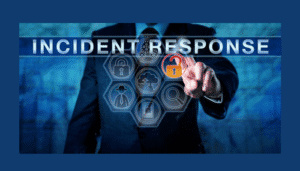If you’ve ever watched the news or heard about data breaches, you know the younger generation of hackers is constantly evolving. Every breach is an opportunity—for them and for defenders like you. Maybe you’re just starting out, curious about cybersecurity, or ready to take your next career step. Whatever your position, you’re probably asking: What will I actually learn in a cybersecurity course?
You’ve likely seen dozens of courses promising “hands-on training,” “industry certification,” or “100% job guarantee.” But those buzzwords often leave you uncertain: what specific skills will you walk away with? In Bengaluru—the heart of India’s tech ecosystem—cybersecurity courses aren’t just academic; they’re designed to be job-ready.
In this blog, you’ll discover ten essential ethical hacking skills that a quality cybersecurity course in Bengaluru will teach you. These aren’t just theoretical; they’re the practical, in-demand abilities that employers across India—and around the world—are searching for. By the end, you’ll not only understand what to expect but also be equipped to compare courses, ask the right questions, and confidently move into this high-growth field.
Why Choose Bengaluru for Cybersecurity Training?

Tech Ecosystem & Industry Presence: Known as the “Silicon Valley of India,” Bengaluru hosts headquarters and R&D centres of global giants—Infosys, Wipro, IBM, Cisco, and Microsoft. Start-ups and cybersecurity firms are proliferating as well.
Industry-Savvy Instructors: Many instructors are current or former industry professionals with hands-on experience in cybersecurity, ensuring that what you learn as ethical hacking aligns with real-world needs.
Access to Real Projects: Ethical hacking courses often incorporate real-world simulations, including internships and capstone projects in collaboration with local firms.
Networking & Career Growth: CSPDs (Cyber Security Professional Development) events, meetups, and job fairs in Bengaluru connect students directly with hiring managers, security leaders, and start-ups.
Cutting-Edge Tools & Labs: From SIEM platforms like Splunk to offensive tools like Metasploit and cloud services by AWS/Azure, you’ll engage with the same tech enterprises use.
In short, Bengaluru is where the learning happens and where the jobs are—making it a strategic choice for ethical hacking training.
10 Must-Have Cybersecurity Skills You’ll Learn From Cybersecurity course:
- Network Security Fundamentals

Grasping how networks operate and securing them effectively is the foundation of ethical hacking. Here’s how a Bengaluru Ethical hacking course typically trains you:
Protocols & Data Flow: You’ll learn how TCP/IP, HTTP, DNS, and other protocols function. By sniffing network traffic and configuring routers, you’ll understand how data travels and where it’s vulnerable.
Firewalls & Access Control: Courses teach you to configure both hardware (e.g., Palo Alto, Fortinet) and software firewalls (iptables, pfSense). You’ll write policies to block ports, restrict user access, and enforce the principle of least privilege.
IDS/IPS & Traffic Monitoring: With tools like Snort or Suricata, you’ll detect anomalous traffic, block intrusion attempts, and distinguish real alerts from noise—all through hands-on simulation labs.
Packet Analysis with Wireshark: You’ll use Wireshark to inspect packets, decode protocols, and discover hidden threats. This skill is key to understanding what’s “normal” and spotting abnormalities in data flows.
Why it matters: Attackers almost always start with network vulnerabilities. Master this skill and you’ll defend the front lines of any organization.
- Ethical Hacking & Penetration Testing

Next, you learn to think like an attacker—but hacking legally and ethically.
Vulnerability Scanning & Enumeration: Tools like Nmap and Nessus help you identify open ports, weak services, outdated software, and unpatched systems—just like a hacker would.
Exploitation with Metasploit & Scripts: You’ll practice launching controlled attacks using Metasploit or custom scripts in Python and Bash. Courses often include Capture the Flag (CTF) labs where you exploit systems and patch them afterward.
Web App Testing with Burp Suite: Learn the OWASP Top 10 (e.g., SQLi, XSS). You’re taught to intercept requests, modify parameters, reproduce flaws, and propose secure code fixes.
Reporting & Remediation: You’ll create professional reports detailing vulnerabilities, risk levels, exploits used, and recommendations—mirroring real-world security auditing processes.
Why it matters: Businesses need skilled ethical hacking professionals to uncover and fix vulnerabilities before cybercriminals do. Ethical hacking is highly valued and in demand.
- Threat Intelligence & Analysis

As ethical hacking professional knowing what to defend against is just as important as knowing how to defend.
Threat Feed Monitoring (OSINT & Paid Feeds): You’ll analyse open-source intelligence, review dark web sources, and use tools like Virustotal to track threat trends.
Indicators of Compromise (IOCs): Learn to identify rogue IPs, suspicious file hashes, or strange behaviour patterns using the MITRE ATT&CK framework as a guide.
Tactics, Techniques & Procedures (TTPs): Understanding adversarial behaviour helps you recognise footprints of groups like APT28 or cybercriminal syndicates before mischief occurs.
Smoke Tests & Simulations: Some courses include labs simulating attacks so you can detect or predict them through intelligence analysis and defensive actions.
Why it matters: Being proactive rather than reactive makes you a strategist who can anticipate and prevent attacks before they happen. This skill is imperative for ethical hackers.
- Risk Management & Compliance

Ethical hacking isn’t just technical—it’s about protecting the organisation, its data, and its compliance status.
Risk Assessment Techniques: You’ll learn frameworks like DREAD or OCTAVE and how to evaluate systems based on impact and likelihood.
Standards & Frameworks: Expect to work with ISO 27001, NIST CSF, GDPR, and PCI-DSS. You’ll map control requirements, document implementations, and suggest improvements.
Policy Creation & Governance: You’ll draft security policies—like acceptable use, access control, and incident response policies—and learn how to enforce them.
Audit Practice Labs: Many programs include mock audits where you assess real systems against compliance standards and triage issues.
Why it matters: Many ethical hacking roles revolve around documentation, compliance, and regulation—not just coding or breaking systems.
- Security Operations Centre (SOC) Fundamentals
Ethical hacking courses simulate the experience of working in a SOC—where incidents are monitored, detected, and resolved.
Understanding SIEM Platforms: You’ll configure tools like Splunk or QRadar to collect logs, build queries, and generate alerts.
Log Analysis & Threat Detection: See how failed logins, privilege escalation attempts, and malware behaviour generate alarms—and learn how to triage them.
Incident Playbooks & Workflow: SOCs run on standardised protocols. You’ll follow playbooks to triage alerts, escalate incidents, and communicate with senior teams.
Team Coordination & Shifts: SOC environments operate 24/7. You’ll simulate shift handovers, coordination, and inter-team communication to ensure continuity.
Why it matters: Entry-level cybersecurity careers often start in SOCs—so knowing how they work and your role in them is crucial.
6.Incident Detection & Response

Even the best prevention fails sometimes. Response matters most when systems are already compromised.
Phases of Incident Response: From initial alert to final review, you’ll work through detection, analysis, containment, eradication, and recovery.
Forensics & Evidence Collection: Use tools like Autopsy or Volatility to identify malware behaviour and gather evidence for legal or audit requirements.
Mitigation & Patch Management: You’ll learn how to quarantine infected systems, patch vulnerabilities, and restore operations with communication to relevant stakeholders.
Documentation & Review Reports: Post-incident, you’ll write detailed reports—including incident timeline, root cause, containment steps, and recommendations for future defence.
Why it matters: Speed and clarity in response support companies in crisis—making you an invaluable asset combatting real threats.
- Security Auditing & Assessments
Think of this as continuous testing and validation of your organisation’s defences.
Automated Scanning: You’ll run tools like Nessus or OpenVAS to discover known vulnerabilities and misconfigurations.
Manual Reviews: Human analysis matters. You’ll check for issues auto tools miss, like weak encryption, mismanaged credentials, or outdated libraries.
Penetration Simulation: This section often complements ethical hacking—where you dig deeper into critical vulnerabilities to demonstrate impact.
Risk Reporting: Finally, you document severity levels, remediation steps, and action plans—used by executives and audit teams alike.
Why it matters: Security isn’t firewall set-and-forget. Regular assessments help keep defences sharp and systems reliable.
- Cloud Security

When infrastructure lives in AWS, Azure, or GCP, security changes—and so does your approach.
Identity and Access Management (IAM): You’ll configure user roles, policies, and multi-factor authentication to ensure access is properly managed.
Cloud Configuration Hardening: Learn to protect S3/Azure Blob buckets, set up VPCs or VNets, and manage public/private endpoint access correctly.
Encryption & Key Management: You’ll explore data encryption both in transit and at rest, using KMS, HSMs, and TLS protections.
Compliance in the Cloud: Cloud platforms hold built-in compliance features—but you’ll learn to monitor logs, audit configurations, and maintain control across hybrid workloads.
Why it matters: As more organisations shift to cloud infrastructure, cloud-specific expertise is in high demand—and critical for future-ready cybersecurity.
- Cryptography Essentials
Cryptography underpins most digital security systems. You’ll dive into foundational theory and practical uses.
Hashing & Data Integrity: You’ll work with SHA-256, MD5, and see how hashes verify downloads and ensure file integrity.
Symmetric vs Asymmetric Encryption: By comparing AES and RSA, you’ll learn when to use each algorithm in real applications.
SSL/TLS & Certificates: Set up secure HTTPS: generate certificates, configure servers, and troubleshoot handshake issues.
Secure Key Management: You’ll explore secure storage and rotation of keys, key lifecycle, and guard against common pitfalls like embedded secrets.
Why it matters: From secure messaging to financial transactions, understanding cryptography is essential for protecting data—now and in the future.
- Soft Skills & Security Reporting

Technical skills matter—but communication skills make your expertise shine.
Writing Clear Reports: You’ll turn technical findings into well-structured reports explaining issues, risk level, and recommended mitigations.
Risk Presentations: You’ll practise presenting findings to non-technical stakeholders—like managers or legal teams—bridging the communication gap.
Team Collaboration: Cybersecurity doesn’t happen in isolation. You’ll learn to work across departments and improve security culture within organisations.
Incident Communication: During a breach, you’ll use communication templates to ensure stakeholders are informed—without causing panic or confusion.
Why it matters: Security isn’t just about code or tools—it’s about convincing others to follow protocols, support fixes, and invest in protection.
also read : Digived cybersecurity course with placement support.
Putting It All Together: Course Outcomes to Job Roles
A Bengaluru cybersecurity course that covers these 10 skills can set you up for a range of career paths:
|
Job Title |
Relevance of Skills Covered |
| Cybersecurity Analyst | SOC fundamentals, incident response, reporting, risk & compliance |
| SOC Engineer / Security Analyst | Network, SIEM tools, IDS/IPS, packet analysis |
| Penetration Tester / Ethical Hacker | Vulnerability scanning, exploitation, web app testing, report writing |
| Cloud Security Consultant | Cloud hardening, IAM, encryption, compliance |
| Risk & Compliance Officer | Policy, risk frameworks, auditing, compliance |
| Threat Intelligence Analyst | Threat feed analysis, TTP mapping, IOCs, proactive defense |
| Security Auditor / GRC Analyst | Auditing tools, manual reviews, compliance knowledge, reporting |
Courses that offer real labs, industry projects, mentorship, and placement support will help you build not just knowledge—but a portfolio. And that portfolio is often the key that opens doors in this field. And if you’re looking forward for a real course that makes a real difference in your cybersecurity journey, Digived is here to hep you.
Conclusion

Cybersecurity is more than just flashy tools or catching hackers; it’s a career of structured thinking, collaboration, and continuous learning. Bengaluru’s cybersecurity courses are unique in offering both the local context and global relevance—helping you build skills that matter, right where the tech action is.
By mastering these 10 skills, you’re not just adding lines to your résumé—you’re preparing to step into the cybersecurity workforce with confidence. You’ll be able to:
- Defend enterprise networks
- Find vulnerabilities before attackers do
- Act on emerging threats
- Ensure compliance and regulatory peace of mind
- Respond to incidents effectively
- Present and collaborate clearly
- Adapt to cloud-forward environments
Whether you’re a graduate, IT professional, or career switcher, choose your course carefully—prioritise ones that deliver these ten essentials. And when you graduate, you’ll be ready to stand out in job interviews, contribute to security teams, and protect organisations in an increasingly digital world.
If you’d like help researching specific courses in Bengaluru or listing top-rated options that align with these skills, I’d be happy to help. Just let me know
“Learn the skills that get you hired—not just certified”
With Bengaluru’s ever growing tech scene, Cybersecurity course opens doors to top ethical hacking positions. Visit Digived Academy to learn more about our Cybersecurity Training programs and start your journey as cybersecurity professional today.
also read: Cybersecurity career in Bengaluru after Ethical hacking course.
Frequently asked questions (FAQs):
- What is ethical hacking and how is it different from regular hacking?
Ethical hacking is the legal and authorised practice of testing systems for vulnerabilities. Unlike malicious hackers, ethical hackers work to improve security, not break it. - Will a cybersecurity course in Bengaluru teach ethical hacking practically?
Yes. Most courses include hands-on labs using tools like Nmap, Metasploit, and Burp Suite to simulate real-world attack scenarios in a controlled environment. - Do I need coding skills to learn ethical hacking?
Basic scripting knowledge (Python, Bash) helps but isn’t mandatory to start. Many ethical hacking tools are user-friendly and can be used without deep coding expertise. - Is ethical hacking a good career choice in India?
Absolutely. Ethical hackers are in high demand across sectors like IT, banking, e-commerce, and government. Bengaluru is a major hub for such roles. - Can I get certified as an ethical hacker through these courses?
Yes. Many institutes offer training aligned with certifications like CEH (Certified Ethical Hacker), which boosts credibility and job prospects.
Contact Us
For more information about our courses, schedules, and enrolment process, visit our website or contact us at.
Website: www.digived.academy
Email: admission@digived.academy
Phone: +91-9019299971



